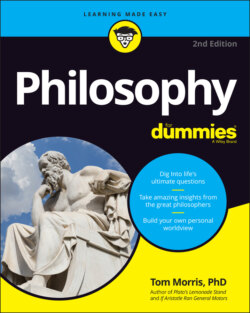Читать книгу Philosophy For Dummies - Tom Morris - Страница 11
Listening to the critics
ОглавлениеThere may be no intellectual activity more misunderstood and wrongly maligned as philosophy. The great American historian Henry Adams once characterized the entire endeavor as consisting of nothing more than “unintelligible answers to insoluble problems.” As far back as the 16th century, the prominent French essayist Michael de Montaigne proclaimed that, “philosophy is doubt.” And, of course, who enjoys doubt? It’s often uncomfortable. It can even be scary.
The 19th-century philosophical wild man, Friedrich Nietzsche, took it one more step and characterized philosophy as “an explosive, in the presence of which everything is in danger.” So, then, it really comes as no surprise to see Nietzsche’s predecessor, the English poet John Keats, worry about all the questions and doubts encouraged by philosophers and ask, “Do not all charms fly at the mere touch of cold philosophy?”
In ancient times, the Roman statesman and author Cicero even complained, “There is nothing so absurd that it hasn’t been said by some philosopher.” Of course, he too was “some philosopher.” But then there are many other very smart and even truly wise people who adopt the label of philosopher with pride. It may be revelatory to understand them and how they see their distinctive activity of the mind.
Philosophers? Crazy! Philosophers? Otherworldly! Philosophers? Gloomy! When we hear the word, we tend to have a modern image come to mind of badly groomed academics, carelessly dressed in tweed sport coats, wrinkled shirts, badly rumpled pants, and old scuffed up shoes, who go through life coated with chalk dust, stroking their beards, bearing scowls on their faces and arcane thoughts in their heads, all the while writing on blackboards or whiteboards in capital letters such weighty words as “DEATH,” and “DESPAIR.”
In 1707, Jonathan Swift wrote the following comment:
The various opinions of philosophers have scattered through the world as many plagues of the mind as Pandora’s box did those of the body; only with this difference, that they have not left hope at the bottom.
In the century approaching our own era, the widely read American journalist and literary critic H.L. Mencken once went so far as to announce, “There is no record in human history of a happy philosopher.” (But, hey, he never met me.)
